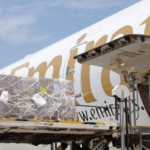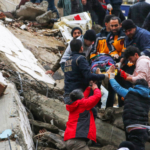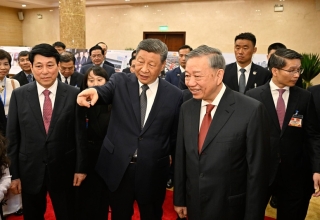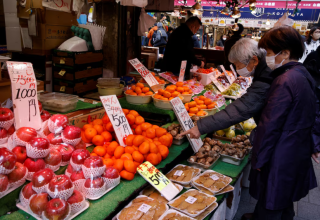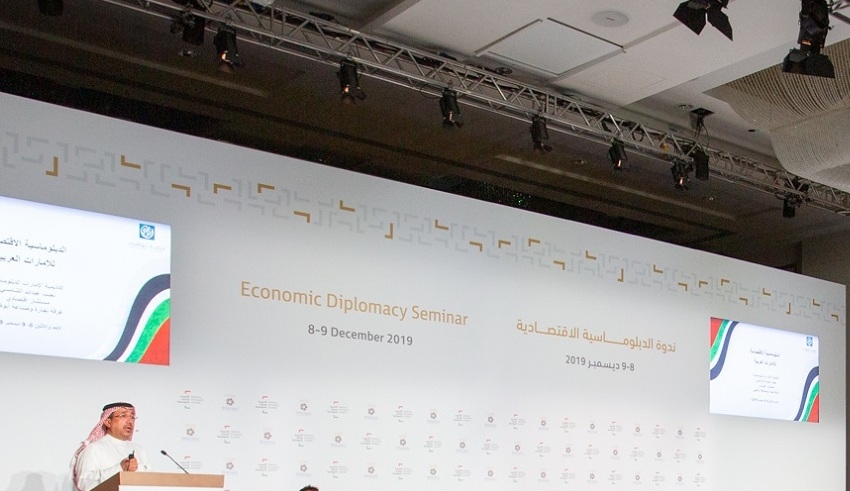
With a substantial per capita Gross National Product, the United Arab Emirates are among the world’s wealthiest nations. They tie for fourteenth position in the world with France, but they finish ahead of Sweden, Belgium, and the Netherlands.
This indicates that they are among the most economically powerful nations. The Emirates are both a wealthy and developed country.
Moreover, the standard of living in Abu Dhabi and Dubai, as well as the country’s other major cities, is comparable to that of Europe.
The regional market potential available from the Emirates is substantial. It stretches from Central Africa (DRC, Uganda), Eastern Africa (Tanzania, Somalia, Ethiopia, Kenya), and Northern Africa (Egypt, Tunisia, Algeria) to Central Asia (Azerbaijan, Uzbekistan) to South and South-East Asia (India, Pakistan, Hong Kong, Singapore), not to mention Iran, Russia, and Central Europe. It is more than 1.5 billion people, of which 600 to 700 million are solvent customers.
In conjunction with the local facilities (infrastructure, taxation, etc.), the scale of this prospective market explains the growth of economic activity in the Emirates, and particularly in Dubai, since 1973.
The Emirates have traditionally followed a strategy that is both autonomous and friendly toward the West. They depend on the West to provide their safety. This is how the United Kingdom, the United States, and France signed defense accords.
Regarding energy supply, the United Arab Emirates are in first place. Hence, they play a major role in extending the country’s portfolio of sustainable energy investments in more than 40 countries, including numerous developing countries in Africa and Asia as well as fragile island nations.
The United Arab Emirates has launched the Hydrogen Leadership Roadmap, a comprehensive national strategy to assist domestic low-carbon businesses, contribute to the country’s objective of achieving net zero emissions, and transform the country into a competitive exporter of hydrogen.
Moreover, the United Arab Emirates launched the “UAE Net Zero by 2050” strategic project, a national endeavor to attain net zero emissions by 2050, making them the first nation in the Middle East and South Africa to do it. North (MENA) to attain this goal. In accordance with this program, the 2030 IMO decarbonization objectives, and the 2030 Sustainable Development Goals, the ministry strives to improve the country’s quality of life.
Advancements across sectors
In July 2022, President Mohamed bin Zayed of the United Arab Emirates made his first state visit to France after assuming control of the country in May. The agreements negotiated between the two nations seek to ensure the short- and long-term energy security of France.
Women’s empowerment is now a reality in the United Arab Emirates (UAE), where a slew of recent initiatives have enabled them to attain additional rights and better protection.
Hence, as a result of these advancements, the UAE today leads the MENA region in terms of women’s empowerment, especially in light of recent legislation that has granted women more rights and better protection.
In fact, between 2019 and 2020, the UAE adopted around eleven new laws and legislative revisions to bolster women’s rights and guarantee their entire empowerment.
In terms of political involvement, a 2019 resolution elevated women’s representation in the Federal National Council (CNF) to 50 percent in the same year’s elections.
The United Arab Emirates have issued Federal Decree-Law No. 6 of 2020, amending certain provisions of Federal Law No. 8 of 1980 regarding the regulation of labor relations and granting female employees in the private sector an additional 5 days of paid leave on top of the 45 days maternity leave already in place.
Keep Reading
The UAE has become the first Arab country to give parental leave to private sector employees.
The UAE has also issued Federal Legislative Decree No. 6 for the year 2020, mandating equal pay for women and men in the private sector if they perform the same or a similar job.
In addition, federal decree legislation designed to amend the Criminal Code have been adopted. Based on the UAE’s strong commitment to preserving women’s rights, revisions to the Penal Code and the Criminal Process Law abolished the item providing for reduced (lenient) punishments in so-called “crimes of ‘honor”.
Now regarded as a developed nation in its own right, the United Arab Emirates reinvests a portion of its economic growth in development assistance for the benefit of vulnerable people in Third World nations.
Benefiting from bilateral cooperation contributions include Egypt, Yemen, Jordan, Iraq, Morocco, Sudan, and Pakistan. The key areas addressed by bilateral pledges have been aid-program, economic infrastructure (energy and transport) and humanitarian aid. The UAE’s bilateral program is mostly made up of grants.
Since 2014, the United Arab Emirates has been a member of the Development Assistance Committee (DAC). As a significant contributor of concessional development financing, the UAE has a great deal to offer to DAC deliberations on critical development concerns. Integrating the UAE’s expertise has increased the quality of the DAC’s work and boosted its impact in influencing the international development discussion, particularly the post-2015 development agenda.
A Promising Global Partner
As the leading worldwide platform for providers of development assistance, the DAC has much to offer the UAE. In example, as a Participant, the UAE has additional opportunity to learn from the experience of other nations in administering a development cooperation program.
The United Arab Emirates is an important regional and global partner with significant initiatives to promote peace and security, respond to rising crises and assist crucial humanitarian operations throughout the world . This is the view of the United Nations, which highly values this dedication to serving mankind.
The UAE is home to approximately 30 UN institutions operating side-by-side in close collaborations with local authorities.
All United Nations Sub-Offices in the United Arab Emirates endeavor to expand ties with GCC nations in order to benefit from their worldwide efforts, notably in the field of humanitarian and development assistance in several parts of the globe.
The objective of agreements between the government and institutions like as the UNHCR is to improve the intervention’s framework.
In addition, the Khalifa Bin Zayed Al Nehayan Foundation, which was founded in 2007 and is headquartered in Abu Dhabi, has an autonomous legal position and the capacity to carry out charity operations and give educational, social, health, and religious support. The foundation’s mission is global in scope.
Thus, the United Arab Emirates place a high value on humanitarian help. Whether in Arab-Muslim nations or the rest of the globe, they are among the most active countries in humanitarian efforts.
They assist populations in social crises or conflict, regardless of their origins, faiths, ethnicities, or cultures. Our nation is now one of the leaders in terms of the humanitarian help it provides.
Many groups and organizations in the United Arab Emirates are dedicated to the effective handling of the nation’s humanitarian initiatives. Among them are the Zayed association for humanitarian work, the Khalifa Ben Zayed Al Nahyan association for humanitarian work, the Al Maktoum humanitarian organization, and the Abu Dhabi fund for development, among others.
Read More:- AI’s danger to Google is advertising revenue, not search dominance
